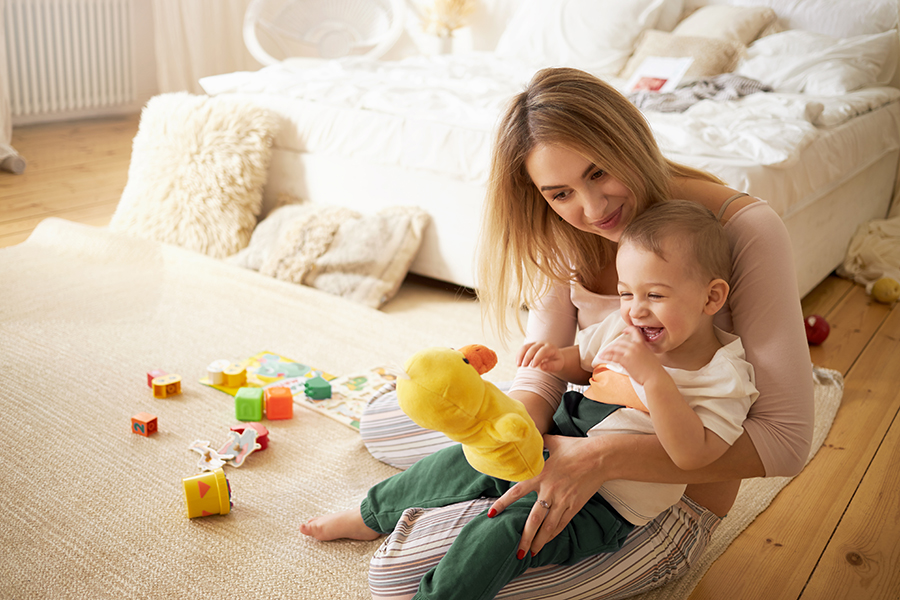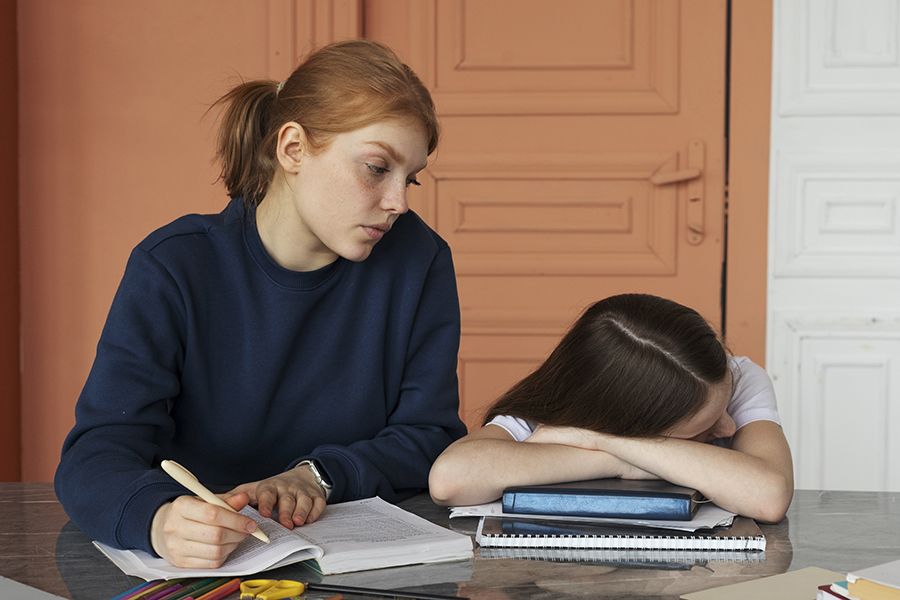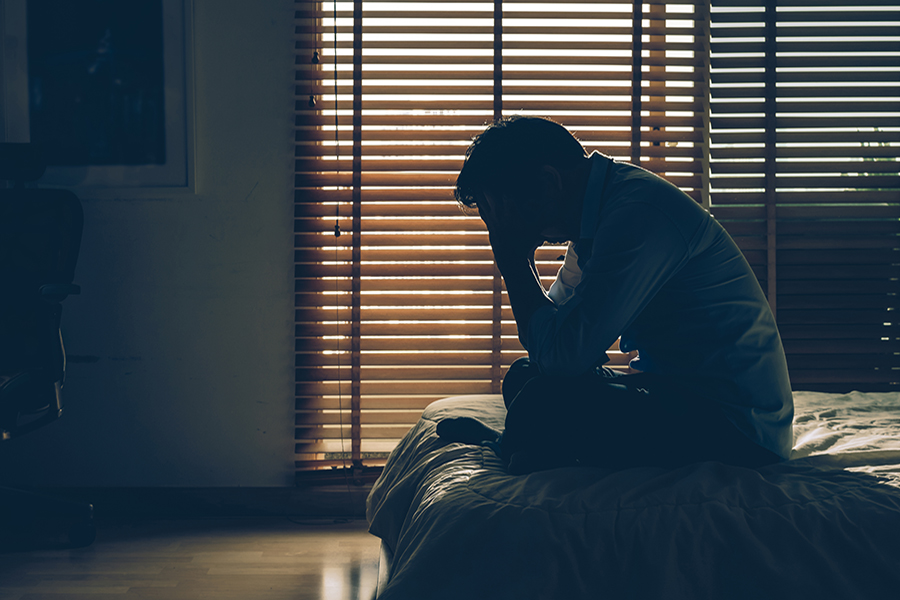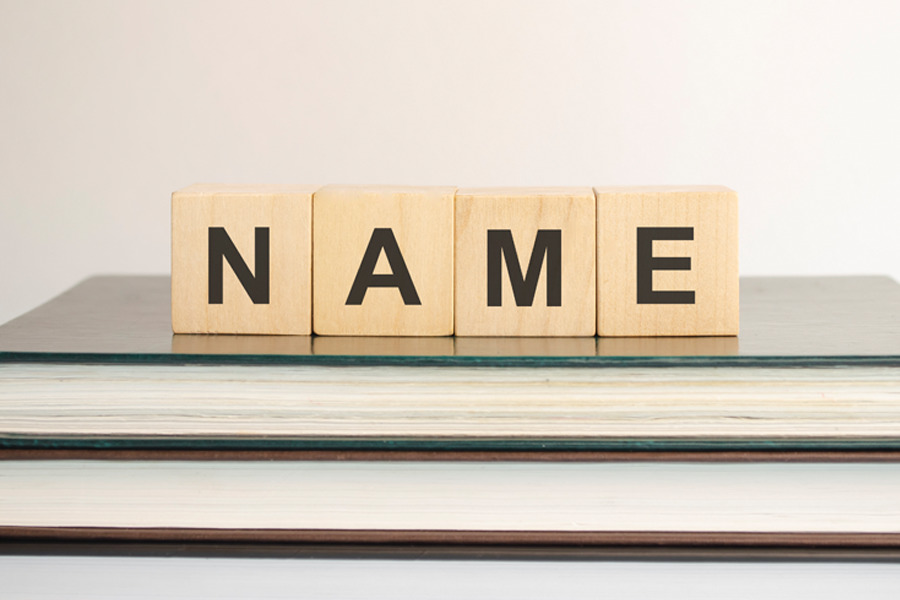Do you have a list of instructions for your babysitter? Perhaps they are in your head and not written down. Every time the babysitter comes over, you quickly run through the list of instructions with them, but you are often left wondering, were they paying attention? Your training at work tells you that most people are lucky to recall 50% of what they hear in a meeting!
Or perhaps you forgot to mention one of the instructions. In a panic, you call home to check in and let them know the additional instructions.
Your toddler is not yet old enough to help the babysitter with whatever they need. A written list of instructions, including emergency instructions, is always a good idea. Leave the list on the kitchen cupboard or place it on the fridge held by a magnet. Make sure your sitter knows where the list is and reviews it. If they have questions, you can answer them and update the checklist later to cover their concerns.
What do you include in a babysitter checklist, and what are some of the frequently asked questions many parents and babysitters have?
What Is a Babysitter Checklist?
A babysitter checklist is a one-page list of essential details that the babysitter needs to be aware of when they are looking after your child. It should include essentials such as emergency numbers to call, medications, and specific instructions regarding house rules.
While you hope that they never will need to call for help, these situations occur from time to time. The power goes out, a fire starts, and there is a medical emergency of some kind. What would you do in these situations? Cover the details and make sure the sitter understands what to do in an emergency.
If the babysitter is new, you may want them to come a bit early so that you can get to know them and review your checklist in detail. While they might only take in 50% of what you are discussing, at least it is all written down and can be referred to if needed.
What is a Babysitter Checklist Template?
Download a babysitter checklist template or create your own and save it on your computer. Make sure that the title includes the word template so that you do not confuse it with another file. Once you have saved the file, open it and resave it under another name to use for your current needs. Update this file as needed.
The template should contain all of the information that is permeant, such as cell phone numbers, neighbors’ phone numbers, and emergency instructions. The current checklist can contain where you will be and how to reach you if cell phones are not working.
The Babysitter Checklist (Essentials)
Every parent will have a different set of priorities and needs; however, the following suggestions should help you finalize your babysitter checklist.
- Communication – is a significant issue and one of the most important. Provide the babysitter with your cell phone number and that of your partner. Include a landline number of the location you will be at if there is one. Many people no longer have landlines. List the phone numbers of the police, fire, poison control, hospitals, etc., in most places; the best approach is to call 911 for an emergency. Include phone numbers of trusted next-door neighbors, but make sure these neighbors know that their number is on the emergency call list.
- Medical – alert your sitter to any food allergies your kids may have and how to deal with an allergic reaction. If your child needs an epi-pen, show them how it works. Most kids do not have significant allergies; however, if yours does, make sure your sitter has all of the relevant information needed to deal with the reaction. Test your babysitter about choking hazards. Do they know that kids under four should not be given large chunks of food to chew? Do they know how to treat a child who is choking?
- Emergencies – show them where the emergency kit is for power outages, e.g., flashlights, etc., where the fire extinguisher is, and what to do if there is a fire, i.e., get the kids out of the house and call 911 for the fire department. You should always have a well-stocked first aid kit on hand. Write down the address of your home for the sitter to provide to emergency services.
- Rules for the babysitter – list the time the kids are expected in bed and bedtime routines such as a bath or bedtime reading. List approved TV shows your kids are allowed to watch. No boyfriends or girlfriends are allowed. Places they are allowed to take the kids, e.g., the neighborhood park, need for sunscreen, be home before it gets dark, etc.
- Age-appropriate rules – rules change as your kids get older. Babies require different rules compared to pre-teens. If you have several children at various ages, rules may vary for each child based on their age.
- Babies – provide special detailed instructions covering food preparation and serving, never leaving a baby unattended, especially in bathtubs or on changing tables, and placing babies on their back in bed with no toys or blankets to reduce the risk of SIDS.
- Older children – develop age-appropriate guidelines that you follow and that your children are familiar with.
Tips to Keep in Mind
- Allow new babysitters to meet your kids beforehand for them to get used to the babysitter. Pay the babysitter during this familiarization process, especially if you have them come to your home early or on a different day to meet your kids.
- Babysitters are not housekeepers and not tutors. They are there to look after your kids, feed them, and put them to bed.
- If the sitter will be at your home over lunch or supper, make sure there is food prepared for the children and the sitter. Also, leave suitable snacks for the babysitter and the kids.
- Provide transportation home for the babysitter. If they are close by and it is late at night, escort them home or watch them leave your home until they reach their home.
- Always make yourself available while your children are being looked after by a babysitter. They are your responsibility, and if the sitter needs your help for any reason, they should be able to reach you.
FAQs
The following are some of the frequently asked questions many parents have about babysitters, as well as some questions babysitters also have.
Generally, it is not ok to sleep while you are babysitting children. You need to be awake and listening to the kids you are looking after. Parents tend to hear their children even while they are asleep. They are attuned to their children. Babysitters are not. They need to stay awake at all times.
Don’t chat with friends all night or occupy the phone so that the parents cannot reach you. Use the phone only for emergencies.
Don’t ever invite friends, girlfriends, or boyfriends. Parents do not like this, and you are not focusing on the job you are being paid to do.
Unless the parents approve, do not feed the kids hot dogs, peanut butter, or hard candies to avoid choking or allergic reactions.
Unless you have experience, do not babysit too many kids at the same time. Children can quickly overwhelm an inexperienced babysitter, and accidents may occur.
Don’t ever leave the kids alone. Check on them even after they have gone to bed to make sure they are fine. A good plan is to check on the kids shortly before the parents arrive home to ensure that the children are fine.
This is your first job, and you should treat it as a job. Babysitters should make sure they have the tools they need to do the job well and comfortably.
Ask for the phone number and address of where the parents will be.
Know the emergency numbers for police, fire, and poison control. 911 can also connect you quickly to the appropriate numbers and arrange for dispatch if needed.
Ask where the first aid kit is located. Most of the time, a band-aid will suffice; however, great babysitters have taken a babysitting course, know first aid skills, and are trained in CPR.
Follow the instructions left by the parents, including snack time, bedtime, and activities
Follow instructions for TV programs the kids are allowed to watch.
Have fun activities planned, such as board games? Good reports from the kids will get you invited back; however, don’t forget to follow the rules left by the parents. Following the rules trumps everything.
Key points, Conclusion, or Final Thoughts
Parents are leaving their most treasured family members in the hands of a stranger. In most cases, there are no problems; however, having a babysitter checklist to review and leave with the babysitter ensures they are equipped to deal with emergencies and follow your guidelines for looking after your kids. Interview your babysitter. Do they have experience? What would they do or how would they react to various emergencies. Provide them with the tools they need to do the job well – emergency phone numbers, food guidelines, bath and bedtime routines that you expect them to follow. Invite new sitters over to allow them to become acquainted with your children and your children with them. As a babysitter, take your job seriously. Take advantage of babysitter training courses and learn basic safety, first aid skills, and CPR. Ask the parents for contact phone numbers and check on the kids regularly after they have gone to bed. Plan fun activities that follow the parent’s guidelines. Children who enjoy your company will have positive reports for their parents about their experiences.








